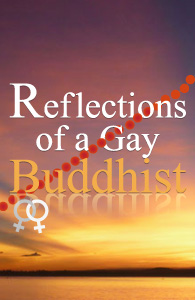Many may wonder what do Buddhists have to do with Christmas. Well, Buddhists can celebrate any occasion, and many Buddhists I know exchange gifts during Christmas, amongst themselves or with Christian friends. In fact, I personally think that Christmas is a lovely time for appreciating friends and loved ones. Some think that Christmas, together with Valentines’ Day, Mothers’ Day etc. have become totally commercial and refuse to celebrate at all. Yes I agree that some restaurants increase prices during the festive season and on Valentines’ day, roses triple in price. So to avoid commercialism, we buy different flowers on Valentines’ Day and dine at different restaurants.

Are we being stingy or merely prudent? Someone asked me – how can we be generous if we ourselves don’t have enough? Generosity is always relative. It depends on how you define it too.
How do we define generosity? Generosity is one of the six perfections in Buddhism, and is even highlighted in one of the aspirational prayers which states: “In the Buddha, Dharma and Sangha, until I am enlightened, I seek refuge. Through giving and other perfections, to aid all, may I become Buddha!”
Generosity is the sharing of time, energy, and material resources with those who are in real need. How do we define enough? When we say we don’t have enough – and we compare our situation with someone homeless on the street, we actually live in abundance. Maybe we cannot buy that Prada bag or the Porsche Cayman we hanker for, but we have a roof over our heads and food on the table, and that’s more than a lot of people have. It’s all a matter of perspective.
There are three types of generosity – firstly, there is miserly generosity. This is when we give things we don’t want. When for George and Steve’s housewarming party, we dig out an unused present from Selangor Pewter (still in its box) that Aunt May gave us for our housewarming and rewrap it up for them. Miserly giving is when we dig out old clothes we will never wear and donate it to the charity home – regardless of whether you think the old folks will ever wear this bright neon yellow sparkly trousers from the early 80s. This kind of giving is actually just recycling.
Secondly, there is kindly generosity. We think of what our friend wants for their birthday and we drive into the city and spend the whole day looking for a particular gift. Or we can even make the gift ourselves because we know our friend would really like it. Or we know our friend is sick and we cook porridge for her and deliver it.
Finally, there is kingly generosity. This is the highest kind of generosity and it is when we give our best – the best portions of our meal, our favourite handbag, our time for leisure, and ultimately, even our lives.
In addition, there are three kinds of gifts: the first and most superficial are material gifts – money, clothes, a car – anything material. This gives merely temporary happiness as the immediate joy of acquisition does not last long.
The second type of gift is one where we teach others self-reliance by sharing with them skills or education. As in the popular saying – give a man a fish and he eats for one day, teach a man to fish and he will eat for life. This independence gives us self-esteem and confidence and is a more lasting happiness. However, it may not be permanent because things can happen which may prevent us from using these skills, such as a debilitating illness.
The third type of gift, which is the most valuable and the most lasting of gifts, is when we help people to transform their minds so that they have less fear. Although we often do not recognise it, our lives are governed by fear. Fear of not having enough money, resources, fear of losing our loved ones, fear of losing our health, fear of losing our status, fear of aging and death. If we can help people to be less afraid, by letting them realise that everything is impermanent, that everything does not belong to us, that the core of it all is to let go; that would be the best gift we can ever give anyone. And the happiness from that realisation would be permanent and that would really be an endless wealth that no one could ever take away. This is the Dharma.
So in this season of giving and revelry, let’s take a moment to pause and contemplate what gifts we are giving (or not giving, as the case may be) and what reflection they are on our motivation. And, we can always afford to give something – a warm smile, a tight hug, good advice or a kind word costs nothing but is priceless.
May you receive the best gifts this Christmas! Merry Christmas and a very Happy New Year!
Sharon Saw is a writer / editor at Kechara Media & Publications, which focuses on publishing the teachings of H.E. Tsem Tulku Rinpoche, a high incarnate Lama of the Tibetan Buddhist tradition. A selection of Buddhist and non-Buddhist related books from Kechara Publications is now available on Fridae Shop. You can follow Sharon on Twitter. This column will appear every other Friday.
